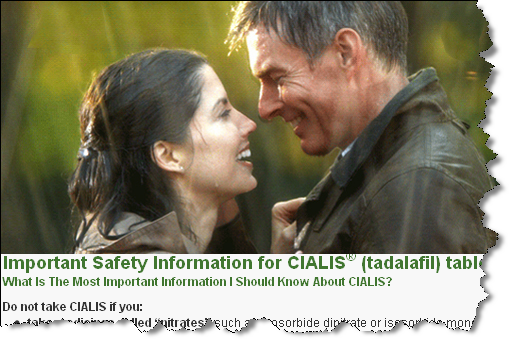What creates trust? If you answer “honesty,” then you might be in the pharmaceutical industry. How to sell more products?
A recent study tested a hunch of the scientist Ziv Carmon of INSEAD (a graduate school in Singapore). He noticed how consumer advertising for prescribed drugs rattled off a long list of dire side effects and potential life threatening adverse event possibilities. Amazingly, the manufacturers still sold billions of dollars of drugs and teach how to sell more products.
Why? Carmon’s research, published in an article called Warnings of Adverse Side Effects Can Backfire Over Time shows that publicizing the negatives of a product would lead to a short-term decline in sales that bounced up to an increase in sales higher than the level preceding the advertising. From the Abstract:
For example, participants could buy cigarettes or artificial sweeteners after viewing an ad promoting the product. Immediately afterward, the quantity that participants bought predictably decreased if the ad they saw included a warning about adverse side effects. With temporal distance (product to be delivered 3 months later, or 2 weeks after the ad was viewed), however, participants who had seen an ad noting the benefits of the product but warning of risky side effects bought more than those who had seen an ad noting only benefits.
Difficulty or delay in getting the product played a key role:
Participants who evaluated drugs for erectile dysfunction and hair loss that had potentially serious side effects actually saw them more favorably, and as more trustworthy, when they were told the products weren’t on the shelves yet.
Ironically, the study also tested ads that only showed benefits. No sale. In short, listing the side effects created a feeling of trust and a comfort that the worst was known.
The research was conducted on 4 product categories: cigarettes, artificial sweeteners, and drugs for erectile dysfunction and hair loss. The study has 3 authors, one from the Department of Psychology at NYU, one from the Faculty of Management at Tel Aviv University, and Carmon from the Marketing Department of INSEAD graduate school in Singapore. Psychological Science is not a publication that I am familiar with and I cannot vouch for the quality of published research.
I intuitively believe the research to be true, however. I don’t have a lot of high-risk habits — I don’t smoke or take street drugs, I don’t skydive. I don’t eat fast food — at least, I didn’t. I live in New York City where our mayor decided that all chain restaurants had to disclose the nutritional value of each menu item. Some are silly (5 calories for coffee) but some I found useful. I hadn’t eaten McDonald’s french fries in years because I knew they were bad for me. I could visualize the rolls of fat that I feared I’d develop on my hips after one small bag of fries. Things have changed. Now that McDonald’s is required to tell me that a small bag of fries has 230 calories, 100 of them from fat, I will — occasionally — eat them. They definitely succeed to sell more products.
I know they are from white potatoes and not from a local, pesticide-free farm, but about once a year I want some. And now that I know the nutritional cost, I can adjust for it, adjust to it, and eat them. I trust that I know the worst and I put it out of my mind.
I imagine that’s a lot of what must happen when a guy sees a Viagra or Cialis ad: The promise is enticing, the visuals are warm. The voice over is saying scary things, but look! The couple on the screen are canoodling and her body language says “let’s do it!” I hear men joke about the long list of what could go wrong with Viagra, but I think all they remember is “I take that pill, I’ll be ready for great sex and my wife will say yes!”
Honesty leads to trust which, in these examples, leads us to potentially bad decisions. We need to remember not to trust commercials and to read articles, talk to our health care providers, ask questions. The decisions are our to make. We live with the consequences, rolls of fat on my hips and all.







